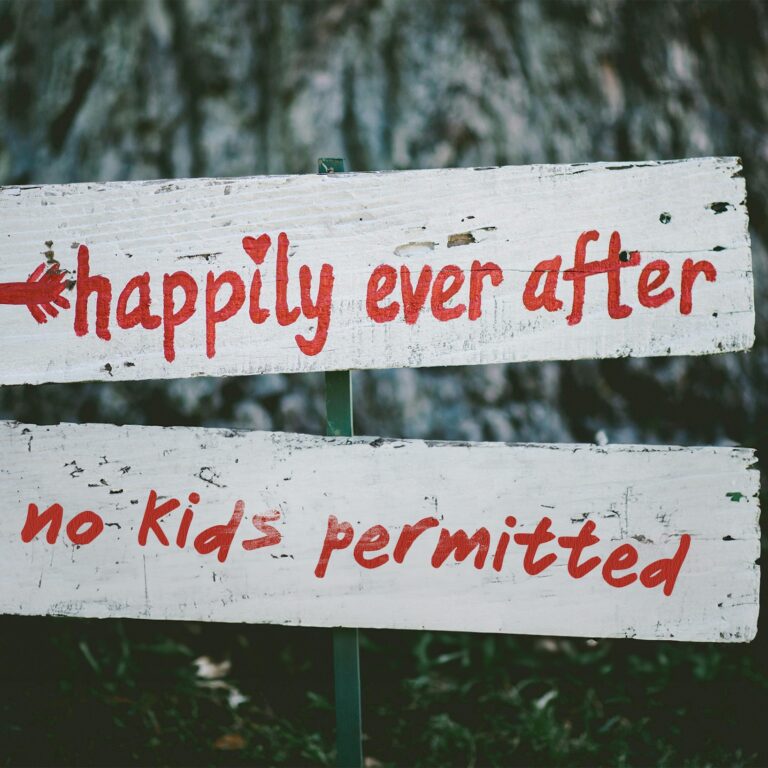Every bride planning her wedding feels the roller coaster of emotions such a huge, daunting task brings. Even natural planner personalities get stuck in a stress spiral now and then!
Still—normal or not, the ups and downs of wedding planning aren’t much fun.
Compared to the “dreaming” stage, that period when it was all fun ideas and Pinterest, the actual planning is where limitations and reality sink in. What you can and can’t afford, who you can and can’t invite, the sheer logistics of hosting up to (or over) 200 people…it wears you down.
When wedding planning stresses you out or leaves you anxious, try these helpful mantras and affirmations to boost yourself back up—even if repeating them feels silly at first.
21 Affirmations to Tell Yourself When You Start to Hate Wedding Planning
1. I’m planning a party — not a performance.
If you use only one affirmation from this list while planning your wedding, make it this one. Every single bride I’ve met (myself included) has this issue at some point.
You’re hosting hundreds of people at once, and that’s just plain stressful. Even if you don’t have many guests, the enormity of “but it’s a wedding” can hang over us like storm clouds for months.
When calculating how much alcohol you’ll need or tables to rent gets overwhelming, or the mere thought of any tiny thing going wrong sends you spiraling, remember: it’s just a party.
Yes, it’s the biggest one of your life, figuratively (and probably literally). But it’s still a party, and you can certainly plan a party.
This isn’t a performance, even if your nerves feel like it is. Not everything has to be perfect, and every single detail will not be displayed under a spotlight.
2. Billions of people have done this already; so can I.
Your wedding is uniquely yours. It’s going to mean more to you than any wedding you’ve ever seen or attended. It’s special.
And it’s one of billions that has happened before! Sometimes, that’s exactly what you need to remind yourself.
If all those other people can plan a wedding, you can too.
Think about it: out of billions of brides, it’s guaranteed their personalities spanned the full spectrum from extroverted party planner, to spotlight-shunning nervous wreck.
But, somehow, they got through this. And you will too.
It might also be helpful to connect with other brides, either current or former, via wedding boards and Reddit threads, or within your own friend group.
Especially helpful are your friends who’ve been there, done that. No one can put wedding planning stress into perspective like a BFF who’s already walked the aisle and lived to tell the tale.
3. Just X more months (or days) left.
When you’re going through a tough time, one of the worst parts is simply not knowing when—or if—it will end.
As luck would have it, you have a deadline to all this stress and exhaustion baked right into the whole process.
Your wedding day is on the horizon. Whether it’s months from now, weeks, or mere days, you know this headache and anxiety won’t last forever.
Make a wedding calendar—something tangible and measurable, where you can see the remaining time shrink before your eyes when times get especially difficult.
A paper chain in wedding colors, a tear-away calendar, or an old-fashioned wall calendar marked with big, red exes is helpful. A phone app that counts down is great, too.
It seems counterintuitive, I know. Why remind your anxiety time is running out?
Frame it a different way: you’re giving your wedding-planning stress an eviction notice. Its time is almost up.
4. “No” is a complete sentence; I don’t owe anyone more than that.
“No” is a full sentence.
That’s it, full stop. If you don’t agree with a decision, or have to stand up for yourself and voice an opinion—you don’t owe anyone an explanation.
What’s more, you don’t owe them an apology for how you feel. Or even a second and firmer “no.”
Of course, we can still choose to provide those things. But only when necessary, and only when we truly want to.
When I was planning my wedding, I did have to say “no” some last-minute plus-ones we couldn’t afford to feed. I told those people the reason, so I wouldn’t seem heartless.
But I didn’t apologize. I’d done nothing wrong. They had, frankly, by asking in the first place.
Another time, when I was asked by a bride to host almost 80 guests at her bridal shower, I told her no—and apologized, because I was a little at fault for not giving her a cap on her guest list.
But I didn’t provide the explanation—that I couldn’t afford it—because it wasn’t her business why I wouldn’t do it.
So you can and should provide apologies or explanations when you want to and they’re truly owed, or if it makes you feel better. But don’t feel obligated if you’re just standing up for yourself.
5. Not my circus, not my monkeys.
Similar to “no” being enough, this affirmation is less about wedding planning, and more about establishing boundaries in our everyday relationships.
As a bride, we might feel like anything even remotely related to our wedding is our responsibility. And that often includes the people in or invited to the wedding.
- Drama between bridesmaids is not your responsibility.
- Your momzilla getting angry because you’re planning the wedding you want and not the one she wants—not your problem.
- The chronic procrastinator groomsman who hasn’t ordered his tux on time, and now has to either step down or pay extra for rush delivery? He’s on his own.
These problems aren’t yours to solve. Not your circus, not your monkeys to train and wrangle.
I’ll admit, this is a hard one to grasp. After all, these things do impact our wedding. How can we say they don’t impact us?
But think of it this way: if a problem requires action on someone else’s part to fix it, it’s out of your hands.
You can prod, give advice, or even offer help if you truly want to. But you aren’t obligated to fix it, because you can’t. You can’t control other people—only how you feel and react.
6. This stress ends at the aisle.
This is similar to Affirmation #3, reminding yourself there’s an end in sight—but it’s also a well-kept wedding-planning secret.
As soon as you start to walk down the aisle, you won’t care about any of this.
Yep: all your stress over the flowers blooming on time, bridesmaids bickering, and even the ever-growing wedding budget? Those evaporate once you see your fiancé at the altar.
It’s hard to imagine. How could this massive weight that’s been on your shoulders suddenly lift, when the wedding isn’t even over?
But in that moment, you realize you’re doing the one part of a wedding that really matters: getting married. The big, overwhelming plans turn back into the small, not-so-important details they were all along.
The affirmation “The stress ends at the aisle” will keep that transformation within reach, and wedding planning in perspective.
7. I’m capable, focused, and ready.
For me, the simple affirmation of “I can do this,” was crucial to planning my wedding. Especially because I didn’t want to plan a wedding at all.
I’m not a big planner. I enjoy hostessing, and loved the DIY crafts that came with wedding planning—but the thought of throwing a reception felt too big and scary to handle.
Fortunately, I had an amazing group of best friends and cousins in my wedding party. They reminded me constantly that I could do this, because they’d seen me do hard things in the past.
I took their words and repeated them to myself every day, until soon it wasn’t their voices I heard in my head—it was my own, reminding myself that I was capable of doing this.
I was focused on my main goal: to get married, and throw a fun party for our loved ones.
And, finally: I was ready. Young or not, my fiancé and I had been through trial by fire for years before that big day. By comparison, planning a wedding was actually pretty easy!
You’re capable, focused, and ready too. You have to remind yourself of that—even if it’s 100 times a day—until you truly feel it, deep down in your soul.
8. Positivity in, negativity out.
While it’s not exactly a wedding affirmation, this go-to breathing exercise is perfect for brides.
Pair it with some simple and short meditations—even if you’ve never meditated before—that you can implement any time, anywhere, when wedding stress boils over.
Breathe in for five seconds through your nose, concentrating on filling your chest, and think to yourself, “Positivity in.”
Then, exhale through your mouth for seven seconds, imagining, “Negativity out.”
It might feel strange at first, or even downright ridiculous. You can’t solve problems by imagining them floating away into the sunset.
But you can recenter yourself mentally and emotionally.
Breathing this way also has scientific benefits of relaxing your muscles, heart rate, and pulling your body from “fight or flight” mode, warding off some anxiety.
9. My anxiety is not a state of being; it’s a signal and a symptom.
(Quick note: obviously, I am not a doctor. Clinical anxiety needs professional guidance and treatment; this next section is based on my opinion and experiences—it is not medical advice.)
This is another affirmation that’s not just for brides planning their wedding, but a great mantra to have in your toolkit, period.
We often approach anxiety as its own problem. In a clinical setting, sure: you can have anxiety disorder. But even then, it’s not really its own “thing.” It’s not a state of being, in and of itself.
Rather, anxiety is a symptom of other problems.
It’s your body and mind’s signal that something is wrong.
I like to think of anxiety as a check engine light in a car. The light is not the issue. Finding a hack to ignore it or turn it off will only make things worse, because it’s trying to alert me to the real problem.
If planning your wedding gives you anxiety, take stock: what could that warning light be alerting you to?
Start with the fundamentals: eating right, getting enough quality sleep, and spending time outdoors.
Socialize with family or friends if you’ve been neglecting doing so—or, if you’ve been “peopled out” lately, spend a day just hanging out with yourself.
Clinical anxiety will require professional guidance, of course. But low-grade anxiousness brought on by wedding planning might just require an audit of your self-care routine.
10. All weddings have hiccups, stress, and uncertainty.
No wedding is perfect.
Even if you’ve been to one that, from the outside, looked like it was ripped from the pages of a fairytale—trust me, it wasn’t.
Behind the scenes, dresses weren’t zipping up. Tuxes were misplaced. A few wedding party or family members were knocking back too many drinks.
At the very least, the months and weeks leading up to that fairytale scene were fraught with stress, money concerns, and more.
Ask the married women in your life to share some of their wedding day hiccups and hurdles. They’ve all got stories in spades, and hearing them—not to mention, how things still worked out in the end—will make you feel better when you encounter stressors and speed bumps in your own wedding.
You need the reminder that no wedding is perfect, so yours doesn’t have to be (and can’t be!) either.
11. I believe in my ability to pivot.
It’s guaranteed that something, big or small (hopefully small, though) will go wrong leading up to or on your wedding day.
Sorry to be the bearer of facts, but that’s just how it goes.
Someone will forget something. Objects will be misplaced. At least one element of your carefully laid plans will not go exactly how you envisioned.
And when that happens, you’re going to have to pivot.
It’s not a bad thing. In fact, the ability to assess a situation and quickly embark on a new plan—even if all you can really do is ignore what’s going wrong and carry on—is a huge component of success, in any area of our lives.
Remind yourself of times in the past where things didn’t go as planned. What did you do?
Even if you needed a minute to freak out first, that’s okay! Even the most spontaneous personalities dislike plans getting derailed.
Eventually, though, you brushed yourself off and went with a new plan (even if it wasn’t yours).
Saying “I believe in my ability to pivot” isn’t reminding yourself that things will go wrong—just that if and when they do, you’ll be ready.
It removes the pressure for your plans to be perfect and foolproof, too, because there’s always another option if the need arises.
12. My support network is ready to help me.
Usually, wedding planning stress can be softened by our bridesmaids.
After all, that’s why we pick them: they’re our best friends and family, the girls who do life with us every single day. So on this, the biggest day of our lives, we know we can lean back on them for support.
If your bridesmaids aren’t helping or keep ghosting you, however, you might feel exceptionally alone.
This leads to worsening stress or anxiety while planning your wedding, feeling like everything is on your shoulders.
Whether it’s your fiance, family members, bridesmaids, other trusted friends, or brides you’ve met online—find your tribe.
You can delegate some wedding tasks to them if they’re willing, or simply confide in them when you feel overwhelmed. Remind yourself you’re not alone in this.
Sometimes the only barrier to getting help, is that we haven’t thought to ask for it yet.
13. The reception is a thank-you to our guests, not a gala.
Like the first affirmation on this list—remember that the wedding is a party, not a performance in need of perfection—keep in mind that your reception is a thank-you party for your guests.
Yep, that’s it. A thank-you. It’s not a red carpet affair or extravagant gala.
Fortunately, no one expects it to be!
If there’s food, some beverages, music, and the common thread of great people who love and support you—the rest falls into place.
Sure, the little details are nice, and some elements are worth the extra mile: handmade favors to show guests your appreciation, or “help yourself” courtesy baskets in the bathrooms, etc.
But, in the end, it’s still just a party. Food, drinks, and a decent atmosphere are all you really need to worry about. The rest happens on its own.
Remind yourself to approach reception planning with that heart of gratitude: you’re not trying to impress your guests. You’re simply aiming to thank them and make them feel appreciated.
14. When I take stock, I can see how far I’ve come with planning.
Any big project hits that “slump” when how much we’ve got left overwhelms us.
In those moments, it’s helpful to look back at what we’ve already accomplished.
We can’t rest on our laurels, of course—but we should take some time to appreciate our abilities and werewithal, and take pride in the progress we’ve made so far.
Wedding planning is no different. Yes, you might be sweating that long to-do list—but give yourself grace. You’ve accomplished more than you think you have, and it warrants some kudos.
Even if you’re just starting wedding planning, hey—at least you’ve started. That’s the hardest part, the first step.
15. I’ve planned an event before; this is no different, just larger.
Obviously, if you’ve never planned an event in your life—this wedding planning affirmation isn’t going to help you.
Odds are, however, this isn’t your first rodeo. Most people have planned something in their lives by the time they don that veil: a birthday party, a baby shower, even a quick office potluck.
Maybe the last thing you planned was a high school bonfire. That’s okay, too!
The point is, you’ve planned an event of some kind. No matter the size or reason, it matters now.
Why? Because a wedding ceremony and reception share the same main elements of any event.
You need to determine guests, location, theme or colors, formality level, food, drink, music, and make sure you can accommodate everyone with enough seating and tables.
Of course, the bigger things get, the more complicated they become. I’m not trying to dismiss the difficulties of wedding planning. It’s one of the toughest jobs you’ll have for a while.
I am, however, emphasizing that a wedding is no different than other events at its core. You have the same basics to figure out, before you can devote energy to the details.
Putting your massive wedding planning checklist into those simplified categories not only helps you tackle it all. It also calms you down, and reinforces memories that you’ve (kind of) done this already.
16. Our guests are those we love most, and they love us. No one will judge.
Two weddings I’ve been in, the brides obsessed for weeks over their centerpieces. Not in a fun, crafty way, either: they lost actual sleep over it, worrying that spray paint wasn’t drying right, buying more Mason jars, or arranging faux rose petals just so.
Here’s the thing, though: not a single guest will remember your centerpieces. Your spouse probably won’t even remember them. And, with enough time, they’ll get a little hazy for you too.
That’s not to say you can’t care about those little details. You can and should, if the small touches matter to you! But don’t feel like everything has to be just so.
Your wedding guests are the people you love most, and who love you and your fiancé most. They’re here to celebrate your love and union—not to judge your centerpieces or catering.
And, if they do judge? Let them. They’re revealing far more about themselves with those criticisms than about you.
17. I only have to climb this mountain once.
Just as it’s helpful to keep the finish line in sight, by reminding yourself all this stressful planning has an end date—remember: you only have to do this once.
We can endure a lot more than we might think, especially knowing it’ll be a one-and-done situation.
(And, technically speaking…you don’t really have to climb this mountain, if you truly don’t want to. More on that below!)
18. At any moment, I can quit wedding planning and elope instead.
Controversial, I know! What kind of advice is that—“give up and quit” when things get tough?
But bear with me.
One of the first weddings I was in, the bride was constantly a nervous wreck.
She’s not usually the anxious type, but wedding planning gave her a new level of stress to combat. She hated attention, big crowds, and party planning.
In fact, until she met her fiancé, she wasn’t sure she even believed in marriage.
For her, knowing she had an “out” from wedding planning was the only thing that gave her the courage to continue doing it.
As her maid of honor, I didn’t try to talk her down from those flights of fancy either—though I didn’t outright encourage it, either.
Instead, I just supported her: assuring her that I’d help however I could with the wedding, and it would be beautiful…but that I also had a go-bag and some money set aside, ready to hop a plane to Vegas at the drop of a hat.
If wedding planning makes you stressed to your core, feeling claustrophobic and trapped—even if you know you still want to go through with the traditional wedding and ceremony—it might be helpful to eye that exit sign: elopement.
You don’t have to elope, obviously. But simply knowing you can? That’s the important factor. For some brides, it’s the only thing that gets them through, and that’s okay.
19. I trust my wedding party and vendors to uphold their commitments.
For some personality types, stress leads to micromanaging.
You can’t help but feel like everything needs to be under your control, or at least under your watchful eye, because it will go wrong if you don’t stay on top of it.
Truthfully, though, you don’t have enough hours in the day. Or energy in your body.
And again, you can’t control other people.
You chose your wedding party members for a reason: you love them, and they love you, and that connection will propel them to stick to their commitments and roles they’ve agreed to.
It might not be in the exact way or timeline you want it done, but it will get done. One way or another.
Ditto on your vendors: you researched and chose them for a reason, and are paying them to do a job. Trust them to do that job.
And, if they are falling short, consider alternatives—but don’t micromanage.
You can’t do it all, and you shouldn’t try. Trust the people you’re supposed to, to do their part.
20. Everything will fall into place or get figured out as we go.
Remember: you can pivot. It’s a party, not a performance.
You can’t and shouldn’t know how every little moment of your wedding and reception will turn out. That’s kind of the fun, honestly!
Aside from a few common sense precautions (formulating a rain plan in the event of bad weather on your wedding day, for example), you have to let go of those “what if” worries. There’s always a way to fix or improve hiccups.
One of the best weddings I’ve ever attended, in fact, had a pretty catastrophic development the morning of: the deejay was arrested.
Not only did that mean the reception would be music-free, but the ceremony would be silent too. He was in charge of it all—the sound equipment, the music, the mics for the toasts.
The bride pivoted quickly, though, and asked her bridesmaids to find a solution.
They called around and learned my husband, a lover of all things tech, had a pretty decent sound system we could bring. I had my old iPod, still able to be synced and loaded up with all the bride’s music.
Another guests had a microphone. Someone else had a ton of light show equipment, sitting in his garage.
It took a little frantic scurrying, but in the end, things turned out just as great—maybe even better, in some ways—as if the deejay had been there.
Guests took turns finding their favorites on my iPod. The speakers my husband brought could be moved more easily than the deejay’s, which meant we could expand the dance area at a whim.
And—most importantly—the bride and groom could relax, as everything fell into place.
21. I accept these feelings; as a bride, they are inevitable.
I know it’s tempting to wish these feelings away.
They’re unpleasant, draining, and sometimes just plain ugly.
But they’re also part of the wedding planning process, and can’t always be avoided. Just controlled.
You might even be able to use them to your advantage!
Stress and anxiety unleash massive amounts of cortisol into our systems. It feels awful—racing heart, a mind that refuses to shut up, tense muscles—but it serves a crucial purpose. It keeps us out of harm’s way, and helps us accomplish what we need to do.
Okay, fair: planning a wedding isn’t the same as outrunning a predator in the woods.
But our brains don’t really know that. They only know “this thing in front of me is freaking me out, so we need lots of adrenaline.” The brain does this to increase alertness and focus, so we can get ourselves to the other side safely and quickly.
Harnessing this to power through wedding tasks is easier than you think. It starts by deciding to embrace those feelings.
Once you accept the feelings are inevitable, you can manage them—and then turn them around to use them as tools and motivation, rather than roadblocks.
Wedding Stress Is Here to Stay—But You Can Control It
Unfortunately, there’s no magic button that makes wedding stress vanish.
It won’t go away until the wedding is over—but you can diminish it, harness it, and keep it in check by reminding yourself of some crucial elements.
All the affirmations for brides I’ve listed here have one thing in common: reminding yourself what you’re capable of, and what the wedding is really about.
Practice makes perfect, too. It feels silly to repeat these in the mirror or jot them on Post-Its in your wedding binder, but over time, you’ll feel yourself internalizing these words.
Little by little, day by day—you’ll believe them.








